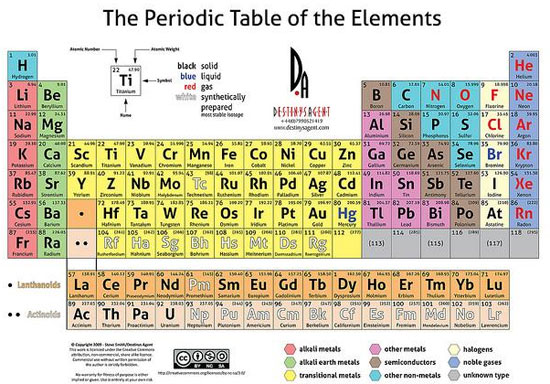The most impressive predictions in human history
There were predictions that seemed to appear only in sci-fi films at the time of its publication, but a period of time afterwards made humans 'stunned' when those predictions came true.
Here are the most impressive predictions in human history
In the 1660s: someday humans would transplant organs from one person to another.

In a handwritten list from the 1660s, Robert Boyle listed a series of predictions about the future that will include the treatment of transplantation. That fantasy became a reality for the first time in 1967, when C.Barnard, a South African doctor successfully implanted the heart of someone who had just died for another. After that, Medicine succeeded in hand, pancreas, skin, and ovarian transplantation. Now doctors are hoping to transplant brain cells to cure the sickness of the elderly as a substitute for some parts of the animal for the sick.
In 1863: when only 60 chemical elements were known, a Russian chemist designed a periodic table to predict the weight and properties of 40 elements that were missing perfectly.

Dmitri Mendeleev, a Russian chemist in the late 19th century, predicted a nearly perfect chemical element. When he began his research in 1863, scientists at the time only knew the existence of 60 elements.
By arranging the elements of the atomic weight and their chemical properties, he found patterns leading him to the idea of the Periodic Table.
1865: Jules Verne predicts the Apollo spacecraft set foot on the moon
In 1865, more than 100 years before Apollo 11 took off, Jules Verne wrote about the first human voyage to the moon in a short story entitled 'From the Earth to the Moon' . He even knew that the ship was launched from Florida, the name of the ship, the number of astronauts and the sense of weightless environment they would have to go through.

1898 : a short story predicted the sinking of the Titanic.
In 1898, the novel "The Frivolous" by author Morgan Robertson told about the death of a ship. The author named the ship 'Titan', the context of the story that happened before the sinking of the Titanic 14 years. In April 1912, after the sinking of the tragic Titanic, it was discovered that the Titanic tragedy and the plot had many strange matches.
In addition to the coincidence of a name anyone can see, both ships, one of the novels, one of the novels are said to be irreparable, are hit by icebergs, and even to the Certain design details (size, speed, weight of turning water) of the two ships are almost the same.
1909: Nikola Tesla predicted personal wireless devices.

In an interview with The New York Times in 1909, Nikola Tesla predicted: people will soon be able to transfer wireless messages globally only with their personal devices.
In 1914 HG Wells predicted an atomic bomb
World set free is a novel by writer HG Wells, one of the most famous science fiction novelists in history. The free world was published in 1914 and the preface of Wells's author said that anyone with an inferiority in the world knows that Europe is about to sink into a global war.
The novel is considered to be the writer's effort to raise the general cry of mankind about the terror of war, with the invention of the atomic bomb. It is hard to believe that even if the world's scientists were not yet born of an atomic bomb, Wells called it by the exact name that would later be called in his novel.
And yet, even if Wells or even anyone else in the world had not yet figured out anything about an atomic bomb explosion going on until 1945, the writer described in his novel that, instead of breaking through with all the energy immediately, the atomic bomb will work for a long time, turning a vast, rich area into a dead ground.
In 1987: Roger Ebert predicted online video and television services on demand Netflix and Hulu. 'We will have high-quality, wide-screen TVs and can put the movies we want,' Roger Ebert said in 1987 during an interview with Omni Magazine.
1988 : Isaac Asimov predicts people will use the Internet to learn.
During an interview with Bill Moyers in 1988, science fiction author Isaac Asimov predicted the Internet, more specifically how students benefit from global information access. Asimov said that through computers, we can access 'connected libraries' . Indeed, today the use of internet for learning needs has become very popular.
1993: an AT&T network advertising campaign predicts the arrival of tablets.

In 1993, US carrier AT&T launched an advertising campaign called "You Will". Images of a device in this ad look exactly like the tablets that appeared 20 years later.
- Robot understands human needs
- 8 unexpected predictions about the people of the
- Details of the three most dynamic stories of human history
- Human genome sheds light on the mystery of human history
- 7 famous women history set an impressive record
- The oldest detection of human DNA can rewrite human evolutionary history
- Lice 'write' human history
- 15 impressive historical moments
- 'Attractive' predictions about the 21st century
- The 40 most talented geniuses in human history (Part 3)
- 10 new 'predictions' for humanity
- 40 most talented geniuses in human history (Part 1)
 'Fine laughs' - Scary and painful torture in ancient times
'Fine laughs' - Scary and painful torture in ancient times The sequence of numbers 142857 of the Egyptian pyramids is known as the strangest number in the world - Why?
The sequence of numbers 142857 of the Egyptian pyramids is known as the strangest number in the world - Why? History of the iron
History of the iron What is alum?
What is alum?